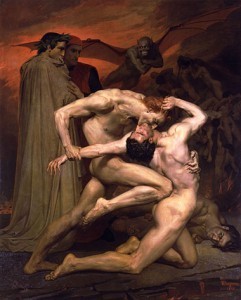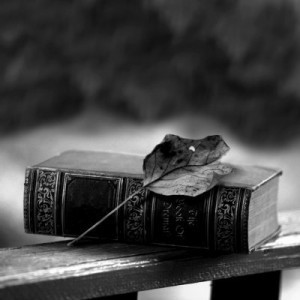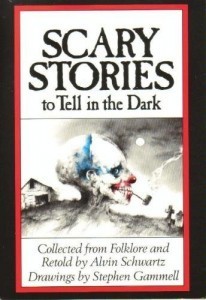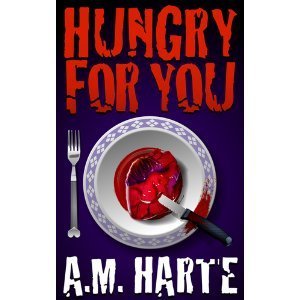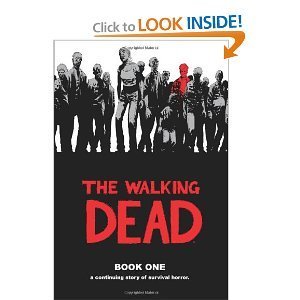MCM's Blog, page 20
December 7, 2011
Mass Media … with Teeth.
The world is changed. Gone are the cheap and easy websites of old, and all the freedoms they gave. Access to the Internet is strictly controlled by newsmedia superpowers, where success is measured by personal secrets bought and sold.
Dissent fights to survive, forced to the margins in hastily-assembled printed zines known as "destructibles." The only free voice in the free world.
As Associate Director of Activist Issues, it's Jack O'Reily's job to search destructibles and identify threats to the system.
Even the threats inside the system itself.
THE DESTRUCTIBLES: Now available on Kindle and Smashwords for $1.99
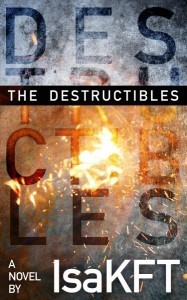
IsaKFT's debut 1889 Labs novel, "The Destructibles", features a topic that seems very possible in our real world. It's no secret that politics control the media; especially here in North America. But what would happen if the mass media companies, stations– even the free associated press websites–all became the politics? What if they eventually controlled the world?
Isa KFT discusses the premise of the novel, saying: "The Destructibles was an exercise in speed writing for me. I was reading an article in Vanity Fair on the NewsCorp phone hacking scandal and I was just inspired by the intricacy of it. I mean it was like something out of a Hollywood conspiracy thriller, wasn't it? The police doing business with the press, the involvement of the politicians, how this web of relationships allowed them to continue for so long…"
Intricate, indeed. But how does The Destructibles reflect our modern day society as a whole?
IsaKFT: "I think it reflects our attitudes. In The Destructibles the resistance struggles to achieve anything because they won't work with the corporation. It's more important to them to be pure and uncompromising than it is to curtail the system's abuses. They feel that way because most of them are upper middle class. They don't benefit from little steps in the right direction, they benefit from huge power shifts that might elevate their status.
Of course none of the characters see things that way, but I think that's the reality of revolution in general. Look at the Occupy Wall Street movement. People are filling the streets all over the world and crying out for more democracy, but also saying that it's not their job to come up with policy. Basically they want the 1% to stay in power, they just want the 1% to make their lives better … but they don't want to be bothered with the details of how that gets done or who does it. How is that democracy? I think what's interesting about OWS is that it started in New York: the state with one of the lowest voter turnouts in America. New York also has the lowest level of volunteering in the country, which is particularly alarming since we have the highest distribution of nonprofits that need help. I would probably feel different about the movement if either of those two facts were different, but I don't understand how you can embrace a culture of opting out of civil society and then embrace revolutionary rhetoric about bringing down the system. The system behaves the way it does because you don't participate in it."
However, IsaKFT also goes on to say: "The Destructibles isn't necessarily anti-revolution. I just think it's dangerous when people value destruction over productive dialogue and collaboration between rulers and the ruled. Sure the latter is a slow, unglamorous and ultimately imperfect process, but every revolution that has ever resulted in building a better society did so by cooperating with the remnants of the old regime. The ones that purge and try to remain uncompromising end up building more oppressive and evil societies than they started out with."
Isa's other works include Split Self, The Freelancers, and Season in the Red. She describes herself as a 'total stat-geek', who loves data and building unique programs. She is currently working on an online thesaurus, which she describes as 'the most awesome the internet has ever seen'.
For more information on IsaKFT, please visit her author website, or follow her on twitter @IsaKFT.
***READERS who subscribe to our mailing list by December 15th, 2011 will receive a FREE copy of The Destructibles and a chance to win a brand new Kindle Fire!
December 1, 2011
It's the Holidays, and 1889 Labs is Celebrating!
The Holidays are just around the corner, and what better way to celebrate than another 1889 Labs giveaway?
So, what are we giving away? A Kindle Fire!
All you need to do to enter is subscribe to our mailing list. After signing up, we'll be notified and your name will be automatically entered into our raffle. The 1889 Labs mailing list will also notify you monthly of all new book releases, promotional offers for books in our current line, along with other contests and great deals! So, it's a win-win.
How can you better your chances of winning? Anyone who signs up to the mailing list, and then tweets about this contest using the tag @1889Labs (so we can see it, of course), or mentions us on facebook, will have their names entered a second time. Doing both will enter your name three times, tripling your chances of winning.
The winner will be announced January 1st. Subscribe by December 15th to receive an additional bonus ebook gift of one of our current titles.
So, what are you waiting for? Subscribe now, and you could possibly be the proud new owner of the newest Kindle version in only a month.
November 28, 2011
Sub-genres in Science Fiction and Fantasy Literature: An 1889 Labs Encyclopedia, sort of.
The fantasy and science fiction genres are vast; they are more like an umbrella that encompasses completely different types of stories. There are millions of books out there that are classified as being science fiction or fantasy (sometimes both), but when a reader is trying to find specific stories in particular, these genres alone won't do much to narrow down his or her search.
Fantasy literature, by definition, is a genre that uses either imaginary worlds, races, supernatural or paranormal characters, and magic. It's often set apart from science fiction and horror by omitting scientific or macabre themes. However, if anyone has noticed as of late, there has been some significant overlapping across these genres.
Science fiction literature, by definition, is a genre that often incorporates alternative earthen histories, distant planets, alien races, epidemics caused by volatile, deadly contagions, or practically anything else that offers insight into futuristic scientific progression. Science fiction is commonly seen being crossed with horror. The console game Dead Space comes to mind (it's not literature, I know), FEAR, and the huge zombie outbreak in the literary world often tries to add scientific explanations to the plague that caused the apocalypse.
The sub-genres of fantasy are numerous. Too numerous to go through them all, but some of the major ones include dark fantasy, epic fantasy, low fantasy, high fantasy and the newest one of the bunch, science fantasy.
Dark fantasy is the sub-genre that accounts for the fantasy-horror mash up. It can also contain macabre themes that aren't exactly horror, but contain brooding and often chilling undertones. Dark fantasy has also been known to include the paranormal and supernatural genres. Usually dark fantasy is limited to worlds that are very similar to ours, with humanistic themes.
Epic fantasy is a sub-genre of literature that normally takes place in an imaginary world, telling a tale over the course of a very long time, which usually incorporates war or some other kind of worldly conflict. Many popular fantasy series are epic fantasies. Some that come to mind are Terry Pratchett's Discworld series, GRR Martin's A Song of Ice and Fire series, and of course JRR Tolkien's the Lord of the Ring series.
High fantasy is a sub-genre of literature that usually goes hand in hand with epic fantasy. Many of the mentioned series above are high-fantasy stories, which are pegged as 'sword and sorcery' fantasy. High fantasy usually contains elves, wizards, kingdoms in peril, dragons, and other mythical creatures and beasts. This sub-genre is also sometimes referred to as 'classic fantasy'.
Low fantasy is a little harder to categorize. These stories take place in a real world setting, with less emphasis on the fantastical. Many low fantasy stories are often set with paranormal and supernatural themes, occurring in our world, with human characters. Low fantasy is antithetical to high fantasy, so it does not contain a surplus of mythic and magical elements.
Science fantasy is the newest sub-genre (or at least newest to me, since I hadn't hear of it until last year), which accounts for science fiction and fantasy cross-overs. Stories that have both scientific and fantastical elements to them, but can't quite be strictly deemed science fiction, nor can it be strictly called fantasy, tend to be termed 'science fantasy' instead. These stories contain a blend of elements related to the science fiction domain, but also contain those related to fantasy as well, such as supernatural/paranormal mixed with genetic engineering or other forms of scientific theory. Though I haven't come across this sub-genre much in the last year I'd known it existed, a movie (whose title eludes me at the moment) that contained vampires claiming the earth and experimenting on humans to create 'synthetic blood', others attempting to research a cure using photon radiation, comes to mind.
The most popular science fiction sub-genres, that I know of, consist of hard SF, soft SF, cyberpunk, and steampunk.
Hard science fiction is a sub-genre used to describe the amount of scientific emphasis or technical detail to a story's setting or theme. Hard science fiction authors often use extremely accurate science or technological aspects to drive a story's plot. Some hard science fiction authors that come to mind are Asimov and Larry Niven. Some of Michael Crichton's works could also be deemed hard SF.
Soft science fiction is a sub-genre that contrasts hard SF. It is not based on the 'hard' elements of science (physics, astronomy, chemistry, etc), but on the 'soft' elements, like anthropology, sociology, political sciences and psychology.
Cyberpunk is one of my favorite sub-genres of science fiction. Stories in the cyberpunk sub-genre are usually set in postmodern times with an emphasis on high technology and low life. It's also usually placed in a dystopian world (many of the themes point to the consequences of misusing science and technology). Plots may center on hackers, artificial intelligence and megacorporations, along with a certain degree of radical political discharge and social disorder.
Steampunk is a sub-genre that can also be incorporated into fantasy. However, it's emphasis on contraptions and alternate histories suggest a more SF foundation. Steampunk settings are usually quite interesting, with a Victorian-esque atmosphere, back when 'steam' was still used as a power source. However, steampunk may also have postmodern elements to them; futuristic worlds with unique contraptions and gimmicks, political orders, all packaged into an unusual society of corsets and tophats. Those are my favorite kinds of steampunk stories, anyhow.
[image error]
Terra Whiteman is a scientist by profession, a philosopher by hobby, and author of 'The Antithesis'. For other musings and additional works, please visit terrawhiteman.com
November 21, 2011
We Need a Lunatic
It probably doesn't show, but 1889 is undergoing a lot of exciting changes right now. Most of them are gestating under the surface, but they'll be bursting out of our collective chests soon, wreaking havoc on the world.
One of the projects has the potential to be a real game-changer in web fiction, getting back to our roots as a crazy experimental company. We've got the model, the tech, the willpower… but we're missing one thing…
A writer.
What are we looking for? We need someone comfortable with the web fiction model. Tight schedules, regular updates (2 times a week!), audience interaction, and a keen eye towards creating fiction that draws the reader in and won't let go. It will not be easy. There will be creative freedom, but structurally, it will have to fit into a very specific pattern. You won't be able to bank any chapters ahead of time, so flexibility is key. The ideal candidate will be able to answer the question: "How the hell did that banana end up THERE?" without missing a beat.
What genre? Our target audience is women between the ages of 18 and 49… which is to say we don't much care what the genre is, as long as it's engaging. The perfect story will be perfect regardless of what label it's got.
There is a compensation plan for the daring soul who signs up. We can't promise vast riches, but I think a good time is guaranteed. Oh, and when the work is finished, it will be turned into a proper print book and sold all over the world. Snazzy, non?
To be honest, this is the kind of project I would love to do myself. But there just isn't enough time in the day, and I think it's time to find someone new to abuse, here at 1889 Labs.
So whaddya say? Want to do something crazy?
If so, email me at mcm@1889.ca. Include a link to some of your writing, a very quick pitch for what you'd like to do, and any questions you have. And hell, even if you don't have a pitch in mind, just let me know you're interested. We'll figure something out.
November 14, 2011
The Costs of Self and Vanity Publishing
This week I'm struggling with lines.
I read this comment at bibliotastic:
"Why oh Why don't these self publishing authors get someone to proof read their books before uploading them. Spelling & grammar like we see in these books would have gotten me expelled from school."
Since order is emerging from the delightful chaos of the digital fiction world, lines are forming where once none were needed and I'm not sure I like where they are being drawn.
Writing of any kind needs only to meet the expectations of its readers to be enjoyed. If readers want foremost to safely predict the plot and the ending, there is no driving need for great literary skill. If readers expect fast moving action, characters can safely be stereotyped. If readers demand a visceral hard-edged slice-of-life drama, they are unlikely to care if there is no punctuation or too many adverbs.
This is borne out in the world of popular print fiction, the only qualifier being that the reader can predict what a traditionally published book will provide because there is a system in place to guarantee such expectations. Readers in the print world can select their preference by genre because someone pays a slew of editors to make sure the genre guidelines are met. Those editors bring with them a host of proofreaders and someone pays them, too.
And who is it that pays for them all? The reader.
Not the author. Published authors are paid their percentage of the cover price. Publishers also pay the acquiring editors and copy editors and the editors-in-chief and the sub editors and editorial assistants, and they recoup the cumulative costs of all successes and failures from the consumer. It is an easy process to follow.
It's how it's always been. Everyone knows what they get. Everyone is happy, aren't they?
No. Readers moan that authors give them rubbish. Authors blame editors who won't buy their Art. Editors blame the book buying public. An extraordinarily narrow line of titles will sell to a large market, while the remaining buying public is no longer big enough to sustain a suitably broad range of subjects and preferences.
No one has actually been happy about it for a long time.
Meanwhile, once upon a time in a digital landscape there was anarchy and it suited the authors and the readers who dwelt in that green and pleasant land. In cyberspace there was a Utopian balance where art was created for art's sake and appreciated by hedonistic epicureans in togas, reclining in fruit filled grottos; a flask of wine, a book of verse and thou.
Or maybe they were really tech savvy literati secretly reading geekphic in their grey felt work cubicles, many of them creating their own fiction. Whoever they were, they knew they should expect the best that could be produced and provided for free. They found they were capable of filtering for themselves. They could find fiction they liked and avoid that which they did not appreciate; there was room for brilliance, and any author could make their art and find their audience.
But outside, the unhappy editors catered to the narrowest market, the unhappy authors muttered, 'Fuck it,' under their breaths and looked for fairer alternatives, and the unhappy readers, with shiny new tablets under their arms, followed a few well known authors into the promised land.
Suddenly digital delivery made both the editors' choices and the distribution bottleneck obsolete and a fashion for self-publishing emerged. Suddenly there were queues. Suddenly we needed lines. According to readers like the one above, we must have standards. Where is the line for a reasonable standard?
Now anyone can write a book, anyone can sell their work to the world, anyone can set their ego free on the page for better or worse, anyone can distribute their work to any outlet, anyone can review their own work or others, anyone can spam the ether, and anyone can be a self-published author.
We are all free from slavery and gatekeepers and no one enforces the rules. No one has to write to guidelines so no one can be sure whether they are reading a romance, or an adventure, or a tragic fantasy. No one checks the grammar, no one deletes excess commas, no one makes sure the heroine gets her man, no one cuts those cheap awful plot devices that leave a reader fuming, no one sets a fair price, and no one checks the author can even write a book.
There are no benchmarks.
Along with all the other things they did for a price, the traditional publishing industry kept enough authors out of the game to avoid a saturated market. That kept the prices high enough to cover expenses. After only months the ebook free market is getting soggy. Authors cry, 'Sale! Sale! One day only!' Readers are milling around, a bit lost. They would like some quality assurance along with their low prices. Like gayray01 at bibliotastic, they are whining about grammar and punctuation even when the work is free. They want standards enforced if they are expected to read.
But anyone can sell themselves as an editor now, too, and anyone can advise on content, anyone can proofread, anyone can be a publisher, anyone can sell cover art, anyone can sell a service or a package of services to a self-publishing author. That author can then enter the saturated market and hope they can get some of their money back.
If an author wants to make money, perhaps even a living wage from their writing, then they have to treat it like a business. Many businesses lose money in the first year or two, but they cannot continue to lose money. Each successive release cannot cost more and earn less than the one before – so is there a line between a reasonable expense for the production of a professional looking ebook and plain old vanity press?
Authors are not generally rich and famous. 95% of published authors make very little money from their sales. 99% of published authors' names will be unremembered five years after the event. When is an ebook published with vain hope of making its costs back? What about the authors who have no interest in making money? Should they, too, be sucked into the booming market for professional services?
How much is needed to produce a professional finish? Is an ebook good enough when it meets all the criteria of a traditionally published novel? Does it need grammar and punctuation correction to a professional standard? That will require several proofing edits at $300 – $2000 each. Does it need quality cover art? Does it need a set number of expectations in plotting enforced in order to be satisfying for the majority of readers?
And if it is NOT a professionally finished product, if it is no more than an author can reasonably produce from their own effort, can it ever hope to draw enough market attention?
If reviewers, who no longer need any kind of pedigree, not even a pass in junior English, decide some books have too many modifiers, or suffer from convoluted sentence structure, or are not grammatically correct, or if they are considered too expository, or too slow, or too meandering, or too violent, or too explicit, can those books from outside the common denominators ever hope to succeed, financially or otherwise?
If an ebook must have a professional finish, that is, must meet all the standards of a traditionally published novel, and therefore must cost many hundreds or even thousands of dollars before it will be read by any reasonable share of the market, how have authors improved their lot by self-publishing? It seems to me they have moved headfirst into the vanity publishing market.
Publishers and distributors can even charge for publishing packages now, and reward a chosen few of the broke authors with extended print distribution – the same sort of distribution once promised by traditional publishers who paid their authors. The situation is ludicrous.
How many 99c books, or $2, or $5 books do we all hope to sell? Is hope the operative word? Dream? Pipedream?
There are many good websites filled with free information to help self-publishing authors find the best deals and avoid some of the worst cost pitfalls, but not everyone is able to do their own research. Certainly the loudest message to broadcast is to preserve your copyright under all circumstances. If you are self-publishing you should never be required to hand your rights or your future rights to any other person or organization. And beware editors who believe they have the right to arbitrarily change your text. But if we are required to meet a set of externally approved criteria and to pay for the freedom to self-publish, how have we moved forward from the old system?
If it costs more to produce a book than you can ever hope to recoup in sales, why would anyone continue to self-publish? If work given away free is ridiculed, why should the hard work and generosity of authors who give their work away continue?
If we reestablish the old system of controls and cliques – or allow it to be reestablished – in the end what have we gained?
Why can't good enough be good enough?
Have we created a system where authors are worse off than they were before the revolution?
November 6, 2011
Dark Romanticism in Literary Fiction: A Historical Look on the Concept of the Infamous 'Love Curse'
After writing a guest post on Heroines of Fantasy, titled 'The Evolution of Duality in Science Fiction and Fantasy', I began pondering other historical elements of fiction that have evolved or inspired some of our modern day works.
My own series reflects a lot of components of classical tales; epics, duality, moral ambiguity… But there is one element in particular that I felt it necessary to expound upon a little more.
Once upon a midnight dreary, while I pondered, weak and weary,
Over many a quaint and curious volume of forgotten lore–
While I nodded, nearly napping, suddenly there came a tapping,
As of some one gently rapping, rapping at my chamber door.
"'Tis some visitor," I muttered, "tapping at my chamber door–
Only this and nothing more."
- The Raven (1845)
Dark Romanticism—also known as Gothicism or American Romanticism—is defined as a literary subgenre that suggests people are prone to sin and self-destruction. Various works of Dark Romanticists frequently show their characters failing to 'improve themselves', and often become destroyed either by the love they can never have due to not being able to change things for the better, or love they cannot escape because it is unrequited.
This sounds familiar, doesn't it? All modern day supernatural and urban paranormal fantasies have some form of dark romanticism in them. This trope usually falls along the lines of a human girl falling in love with a paranormal creature—a vampire or werewolf, who usually is brooding and full of angst, who mourns their existence but cannot change who or what they are. The heroine is left to either accept this and suffer with them, or leave them and suffer alone.
But I think one of the more important aspects of dark romanticism comes from the psychological components of a broken heart, or one that aches so much for someone they can't have. Nathaniel Hawthorne and Edgar Allan Poe were masters of this aspect of Dark Romanticism, but prior to the 19th century, works by German author Johann Wolfgang von Goethe were published, titled The Sorrows of Young Werther and Sturm und Drag in the 18th century, along with the Marienbad Elegy in the 19th century. Even Shakespeare had numerous elements of Dark Romanticism in his tragedies.
Like Goethe, Poe's works often reflected the inner turmoil and psychological decay of his characters who suffered from the loss of love. These are all reflections of the gloomy and morbid components of Dark Romanticism; the elements that describe just how much love (or emotions in general) can destroy us, and this is a very interesting (and mostly true) statement on the power of human thoughts and feelings.
I think that it is important to distinguish between the Dark Romance of today, and that which had surfaced in its early beginnings. Before Anne Rice's self-loathing paranormal characters, were characters that were human and distraught with unrequited love and loss.
In the beginning, this subgenre was actually a more factual take on love in real life than what we see in romance books and films. There is usually no 'happily ever after', and if there is, it takes a lot of blood, sweat and tears to reach. How many times has romantic love burned us in our lives? Dark Romanticism speaks to these certain areas of human emotions–;
The pain, the misery, the confusion and the tragedies of humanized love.
Suggested Classical Readings:
The Scarlet Letter – Nathaniel Hawthorne
The Telltale Heart and Other Writings – Edgar Allan Poe
The Sorrows of Young Werther – Johann Wolfgang von Goethe
Hamlet – Shakespeare
The Iliad – Homer
October 31, 2011
Happy Halloween from 1889 Labs!
Halloween is one of my favorite holidays, mainly because I don't usually have to cook anything. Aside from this, there are plenty of local festivals in my area, along with parties galore. I'm currently suffering from a hangover as I write this.
My last two days off have been spent watching movies and indulging in some dark-themed literature in an attempt to keep with the Halloween spirit until tomorrow, when all the fun ends and my work week begins. And, since it is Halloween today, I thought I would share with you some of the pretty awesome things I've read/watched over the last couple days, along with some other recommendations for making your Halloween night entertaining!
Scary Stories to Tell in the Dark by Alvin Schwartz
I was first acquainted with this series when I was in the third grade and our teacher, Mr. Metzler (I will never forget him, since he was the most awesome teacher ever) would read some of the stories to us as 'end of day' treats if our class got all of our work done. Even now, some of these stories are particularly unsettling, especially the more ambiguous, malicious ghost ones. I used to have the entire series, but alas I've lost them in the multiple moves over the years. I plan to purchase all of them soon, though.
[image error]
The Raven by Edgar Allan Poe
This is a classic, so I'll spare you the synopsis since I'm sure everyone knows this poem. Edgar Allan Poe is one of my favorite authors of all time, and in my honest opinion, The Raven isn't his best work. However, it's suiting enough for the Halloween theme than his other dark romanticism stuff, so here it is.
Hungry for You by AM Harte
This 1889 Labs published work pushes the envelope in current zombie fiction. It's grotesque, oddly touching, slightly humorous, and somewhat thought-provoking in the sense that it explores life after death on a more darkly romantic side of a zombie epidemic, rather than the running and screaming for your life side.
The Walking Dead Series by Robert Kirkman
If you're a zombie fanatic, I'm certain you've heard of this. It's also a television show now. However, the television show is just a fraction as good as the comic series itself, and so I suggest reading it. I'm not a huge fan of zombie fiction to begin with, but Kirkman's stuff is pretty stellar. It's dark, and violent, and it really deals with the relationships made between survivors rather than the zombies themselves. In fact, the biggest threat becomes humans after the zombie apocalypse hits.
That's all for now. I'm off to spend the rest of my evening with some friends and haunted houses. Happy Halloween, everyone!
October 24, 2011
A True Definition of 'Indie'?
When I was invited to repost this blog for a wider audience, it did not surprise me so much considering the links, comments, discussions, emails, and other blogs that coincided with the post. It seems my definition of 'indie' hit a nerve.
I thought I'd start this time by asking Wikipedia what 'indie' means.
A general paraphrasing of all the 'indie' terms gives us: 'indie' originated with independent record labels from the post-war period, who have a long history of signaling developments in popular music – Blues, Jazz, Rock n Roll, Punk, Rap and Grunge. They were all new forms once, and outside of the mainstream.
As is 'indie' design, which is supported by a growing number of 'indie' shoppers seeking niche and often handmade products as opposed to those mass-produced. And with 'indie' games there is a focus on innovation, and reliance on digital distribution. Being independent, developers do not have creative limitations and do not require publisher approval as mainstream developers do. Therefore 'indie' games are known for innovation, creativity, and artistic experimentation.
The National Literary Awards defines 'indie' literature "books published outside of mainstream publishing." Such are books rarely recognized and hard to pin down. And 'indie' films are distinguishable by their content and style and the way in which the filmmakers' personal artistic vision is realized. Generally, the marketing of 'indie' films is characterized by limited release designed to build word-of-mouth or to reach small specialty audiences.
There has always been more to the concept of 'indie' than DIY. The hordes of self-published authors who are literary icons today were never called independent and never 'indie'. They were self-published.
Anyway, I was struck by a blog from Dan Holloway about the need for bad books. I wholly agree with him that we need a whole lot more brilliant, bright, left of centre, genius books that absolutely don't conform. I am cheering all the way. I don't care if the punctuation and grammar are shitty. I don't care if the narrative structure is bizarre. I want to be moved. I want to read good bad books. I want to finish reading and say to everyone, "I read a great book today." I can survive a deluge of not so good for the sake of knowing one gem will be washed up.
What's going on with 'indie' fiction, then? Why aren't I seeing this sort of sparkle anymore?
[I'm not talking about formulaic genre, here. That's everywhere just as it is on the print shelves and that is good, it's FINE; it's tapping a market just as the big houses do. That sort of best-selling pulp will always be one avenue of income for prolific writers. I'll be a one man cheer squad for the basic novel. It has all the expected elements – my big blather – it meets reader expectation, so it sells. It is what it is, it conforms, it is not about breaking free or bending rules. And it's not 'indie'.]
Why this wash of cold grey porridge from those who believe they answer to a higher form of Art? Editors are a big 'no no' here in the ether, so we can't blame them. [Editors with the skill to nurture individual voices might just be real life angels, imho.]
When I discovered online writing, both ebooks and webfiction, I came with the preconception that this was where failures came to flog their wares. I thought if it wouldn't sell in the real world, they gave it away online. Except, I was wrong. I was as wrong as a big lump of 'completely misguided' in a bucket of 'totally confused'. What I found online was a community of writers who had made the deliberate, abiding, and successful choice to publish themselves online. There were thousands of magic free books, serials, and collections, and there were as many more available for sale.
Many of them were extraordinary!
'Indie' represented a conscious choice and philosophy. It was a choice – often when a genuine choice was available. It was a way to present an individual vision, an independent form of art. It was deliberate, with small groups and independent publishers supporting each other in the production and presentation of original fiction. I hoped that the outside world, the traditional world, would look at what people were doing in here and say – WOW! We can learn from this 'indie' thing.
That isn't going to happen.
What is happening is a flood of writers from the outside world are bringing in their traditional values and their dreams of traditional adoration. If they cannot get B&M editors to see their light shining from the neat double-spaced hardcopy manuscript on the desk in front of them, they put their work online and call themselves 'indie'.
What's the difference?
Many years ago I gave up on Writers' Groups. I found lovely, lovely, likeminded people who got together to share a common interest and help and encourage each other. Most groups fell apart after six months, but those that succeeded drew new members and the old members gained some kudos. Original members became the elders, the voice of wisdom, the judges, and the critics. Their publishing credits remained at four letters to the editor and two shorts stories with a flower motif published in the Gardeners' Monthly, but time gave them prestige. They put out a newsletter and added 'Editor' to their list of credentials; they ran competitions among their members and added Prizes to their CV.
Why? So that when they sent their next neat double-spaced hardcopy manuscripts to the publishers, they had a publishing history to embellish on their cover letter. A bit of 'spin' to help them pass through the first five gates on the way to having an editor actually read the written word itself. Then they began running 'How to' courses. "How I reached these dizzying heights of publishing glory, by Troy McClure". Writing 'Published Author' after your name does not make you an expert. I could even point you to teachers who have no publishing history and no expertise, just spin, spin, and more spin.
So what's wrong with any of that? Nothing. Go ahead and do it. Enjoy. It is how the system works.
But now I see that same Writers' Group crowd moving into the independent fiction world. Colonists bringing their dreams and their MO and imposing the false hierarchy that ends with a three book deal or bestseller status in the traditional world, as if it is ideal. Self-publishing is only seen as a way to gain the attention of a fictional editor who scans the World Wide Web looking for the next big thing. [Meanwhile they spam every webpage that does not explode with news of their yet-to-break bestseller.]
I saw a short story recently and I was delighted. It was a gem, just a little diamond, tiny and sparkling. It was put before the kind souls in a writers' group for consideration. I wept – Really! Tears! For someone I do not even know.
Why? Because the very well-meaning people in that writers' group shredded the story. They explained how to form 101 sentences. They suggested some improvements that would gain better marks in a creative writing 101 exercise. They did their very best to encourage the author to write as they themselves had learned to write, 101. They did it from the very best of hearts, and the kindest wishes. I always think of the paving on the road to Hell, though, I'm afraid. I don't know what happened to the story.
And that, in the end, is what is wrong with half of the independent fiction I've seen lately. They are written for the giant online slush pile in the hope of being discovered by the phantom editor, or they are shredded by the well-meaning support network. Anything like an original form of expression has been simplified to the mantra 101. Anyone using sentence structure for more than the transference of thoughts has their grammar and punctuation hammered flat to the mantra 101.
The 101 rules are out there, everywhere. I laughed yesterday reading 'The World Is Mine', by William Blake. "Show, don't tell, Mr Blake," I said. "Are you an expository imbecile?" That fool Herman Melville with his seventy-six word sentences, with three semicolons and eleven commas. Joyce! Where do I start with James Joyce? That blitherer Shakespeare, making up words! Can you believe it? They'd never pass 101, none of them, ever.
That is also, then, why I no longer use the word 'indie'. What is that quaint little nugget? Conceive, believe, and receive, is it? I think I inadvertently caused a shift in reality, superpowerful as I am, by believing that the world of independent fiction was a bit like the Vanity Press of ten years ago only cheaper. I was wrong then, but it seems to me to be changing before my very eyes. The mess I once conceived has begun to take shape, and now they call it 'indie'.
In time, I suppose, the pendulum will swing as it always does and passion for the fashion of being 'indie' will pass as reality sets in. The mainstream establishment will wait while the multitudes and the market forces do their work for them. Bookbloggers, who were once the mainstay of independent marketing will turn more to mainstream ebooks to raise the status of their own sites. Reviewers will continue to berate any work which does not fit the bestselling trend du jour. Independent booksellers will keep going broke because there are more people are trying to sell their books than there are trying to buy. Dymocks et al will sell vanity packages and offer shelf space to the lucky few 'indies' who win their praise. The lowest common denominator will reign supreme and the mainstream will be reinstated.
And I hope, in the end, the really brilliant, the exceptional, who came here first and who keep chipping away stoically, will still be here somewhere when it all blows over. They will have to come up with a new name, though, this one's a bit grubby.
October 18, 2011
Interview with Book Blogger Frida Fantastic
Frida Fantastic is the head Book Blogger over at Adarna SF, a site that primarily reviews works by independent authors (authors published either by self or from publishers outside of the 'Big Six'). She, along with two other bloggers, maintain the site, adding weekly reviews of books that lay within the speculative fiction umbrella.
What I particularly like about Adarna SF is that they not only review a lot of independent works, but works that are truly independent in terms of genre (as in stories outside of the typical story norms). The books they accept to review are typically well done and by extremely talented authors, whose imagination and writing tends to step beyond what we generally see in the mainstream mass-market.
And since I'm such a sucker for weird, original shit, I've actually purchased and read quite a few books based on Adarna SF reviews in the past, and I haven't been disappointed.
I recently had the opportunity to have a chat with Frida about herself, her blog, and all other elements pertaining to Adarna SF and its raison d'etre.
TW: Tell us about yourself. Who are you? Where are you?
FF: I'm a speculative fiction enthusiast and book blogger based in Vancouver, Canada. I'm a big supporter of indie e-publishing and something of an ebook evangelist.
TW: Tell us about your book blog, Adarna SF.
FF: Adarna SF is a speculative fiction group blog with book reviews in science fiction, fantasy, and horror. We focus on ebooks from independent publishers and self-published authors. It started as a single-author blog in April 2011 under my blogging name "Frida Fantastic", but it relaunched last month when it officially became a group endeavour.
Matt and Chris, the other reviewers, are experienced book bloggers (Chris has been book blogging for five years!), so it's great to be blogging with them. We have different favourite sub-genres, but we all love SF/F, so Adarna SF is shaping up to be a site of high quality reviews that cover a range of ebooks in speculative fiction. We get into the details of each book, both good and bad, and I think readers appreciate our thorough and straightforward approach.
TW: What's your favorite fiction genre? Why?
FF: I identify myself as a speculative fiction genre reader; spec-fic constitutes 90% of the fiction I read. Within the umbrella of spec-fic, I enjoy science fiction, fantasy, and horror fairly equally, so in my head, I barely distinguish between them. I'm a sucker for body horror and stories that fearlessly deconstruct genre tropes. I'm also intrigued by books with non-Western settings.
TW: Judging by the fact that you run a book blog, it seems that you are extremely passionate about literature. What brought on this undying love for books?
FF: Literature is a glorious storytelling medium that's personal and participatory in a way that visual media isn't. It's a complex art where a writer conveys entire worlds, sensations, and lives with nothing but text. The reader in turn, transforms the work into an experience in her mind. The most powerful literature crafts a story so compelling that it feels as exhilarating and meaningful as if the reader lived it herself. It's an entertainment form that'll never reach the heights of television in the 20th century, but it's a beautiful craft and it will last through the ages.
I immigrated to Canada when I was a child, and while English is a widely spoken language in the Philippines, I still struggled with it. I was encouraged to read novels to help me along, and although some of the books handed to me were a drag to go through, my first experiences with the fantasy genre really sparked that love for reading. I have fond memories of Laurence Yep's Dragon series and Sabriel by Garth Nix. Once I was immersed in worlds where an orphaned Chinese boy could adventure with dragons and a teenage girl could banish hordes of the undead, my young soul was forever lost to speculative fiction. I'm sure I'm going to be a genre geek until the day I die, and probably even after that.
TW: Adarna SF reviews only independent and small press authors. What brought on this decision? What do you find appealing about independent/small press books?
FF: I got into book blogging because I was curious about independent books, but there wasn't enough coverage of books published outside of the big six publishers. Other than books from Night Shade, there aren't that many books from independent publishers that are being reviewed at the major SF/F blogs. So basically, I started a blog that would help fulfill that need.
The purpose of Adarna SF is to cover books that the bigger SF/F blogs don't focus on: ebooks and indies—the books that are benefiting the most from the ebook revolution. Hence our tagline: "a speculative fiction blog for the ebook revolution". There's so many indie ebooks out there that it's almost overwhelming, and they range in quality with regards to both story and editing. At Adarna SF, we try to be a helpful guide as we highlight books that we think are deserving of attention and let readers know what they're really getting.
Actually, we do review books from major publishers, but this happens very rarely. Our submission system is not open to books currently published through a big six publisher, so if a book is featured on the blog, it was either bought personally by the blogger or temporarily procured from the public library. So while other blogs review indies once in a blue moon, we do the exact opposite. We just have our blogging niche staked out. When readers visit our blog, they know that they're going to see candid reviews of speculative fiction books, all of which are affordably priced and could be downloaded to their e-reader in a matter of minutes.
Regarding indie ebooks themselves, indie e-publishing provides the opportunity for all kinds of stories to be shared. The selection is amazing, and the internet connects readers to books in ways that were previously not possible. Book buying has never has been this easy in world history, and I think we're entering an era of a truly global reading and publishing culture. It's exciting!
TW: Who are some of your favorite authors?
FF: I'm not very good with listing favourite authors. It sort of comes with the assumption that I've read through most of their backlists and prefer it over other authors' backlists, although I may just be overthinking the question. Ursula K. Le Guin and Gabriel Garcia Marquez are the first ones that come to mind.
And like many other genre fans, I really enjoy George R. R. Martin's Song of Ice and Fire series, and I'm glad that there's been a surge in popular awareness of it due to both the HBO series and the release of the fifth book.
I'm also starting to pick out some new favourite authors from my book blogging, and those should be fairly clear from my reviews.
TW: Finally, what do you think the philosophy is behind indie book blogging? How do you feel you are contributing, or hope to be contributing to the indie world?
FF: I think that there are a lot of misconceptions about business models in publishing, but that's all they are—business models. A good book is a good book regardless of whether it came out of Tor, 1889 Labs, or a self-published author on Smashwords. It's the end product that matters, and readers could care less about how it got there. Honest reviews of indie books help eliminate those misconceptions. At Adarna SF, we give praise when it's well-deserved and we don't hold back on our criticisms. It doesn't matter if an ebook is from a big independent publisher, a smaller press, or a self-published author. It doesn't matter if the book is $9.99, $0.99, or free. We expect high quality books with regards to both story and editing.
I don't see Adarna SF as specifically contributing to the indie world, but rather, we do our best to contribute to the speculative fiction community. The blog owes much of its beginnings to our fellow pro-indie comrades over at the Mobileread forums and blogrings like Simon Royle's Indie Reviewers, but our target audience isn't necessarily people who already read indie. We communicate to genre readers who have embraced ebooks and are interested to learn of the books that their other SF/F haunts may not cover. We help fill that demand. The number of people reading ebooks is only growing, and our blog can only continue to be more relevant as the ebook revolution marches on.
October 9, 2011
The Antithesis: Book Two Beta – One Week Countdown
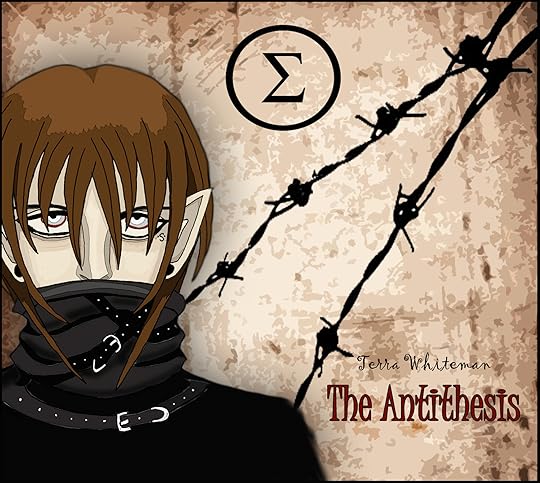
On October 17th, 2011, the third installment of The Antithesis, Book Two Beta will be released in ebook and print. The hotly anticipated conclusion of ARC II: DECUS, along with ARC II.V: CRUOR are included, and if the last two books have left you on the edges of your seats, be prepared to actually fall out of them this time.
This is the third out of the five book series, and if you haven't yet had the chance to check them out, now's a good time. The first book is only $0.99 for ebook, and $12.99 for print.
For more information, visit http://terrawhiteman.com and http://1889.ca/antithesis/
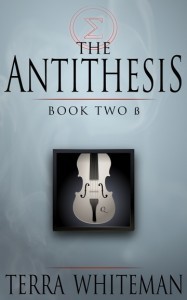
THE ANTITHESIS: BOOK TWO BETA
Qaira Eltruan is the Commandant of the Enforcers, Sanctum's Special Military Sect of angel exterminators. The war against the Archaeans has been nothing but a seventy-year stalemate, yet everything is set to change with the arrival of a mysterious Scholar who can serve to sway the battle in their favor. But this Scholar has secrets of her own…
Secrets that may kill them all.


